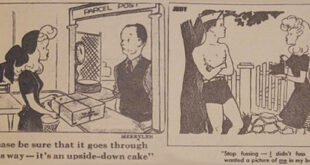In the fourth installment of my ongoing series on how to deal with the looming crisis associated with long-term care costs for the middle class, I would like to talk about when it may be necessary to revise wills and trusts. Also, what should these revised wills and trusts look like?
First of all, we should remember that during our maturing years, most people, especially those with children, will prepare wills and trusts that deal with what happens to their assets upon death. This is a very understandable and laudable goal, especially for those people that are afraid of leaving small children behind. However, as we go beyond our maturing years and start focusing on our senior years, the focus is no longer “what happens when we die,” the focus now changes to “what happens if I don’t die and I need long-term care for a long period of time.” When that becomes the concern of someone going into their senior years, wills and trusts must be modified in few different ways.
- For single persons, there needs to be the ability to withdraw assets from a revocable living trust, or various types of asset management accounts, like pay on death accounts at a bank, transfer on death accounts at a brokerage firm, and IRA accounts. The reason for this additional withdrawal power is so assets can be withdrawn from these repositories and used elsewhere in accordance with planning techniques designed to preserve assets so that eligibility for Medicaid long-term care benefits, such as nursing home cost coverage, can be achieved. This would be a satisfactory result.
- In the case of married individuals, it becomes very important to be able to not only withdraw assets from various places, but also redirect assets in the event of the death of one spouse. Specifically, if we have two spouses, but one is in a nursing home, and the other spouse, who is otherwise healthy, should die unexpectedly, the assets of the deceased spouse will be transferred to the surviving spouse and those assets could be subject to a complete Medicaid required spend down for nursing home costs. This unfortunate circumstance can be avoided if the couple restates their wills and trusts. Rather than transfer assets to the surviving spouse directly, assets can be transferred to certain special needs trusts that are created for the surviving spouse who is residing in a nursing home. This type of special transfer will allow the surviving spouse to continue to receive benefits from Medicaid for their long-term care, and at the same time enjoy the inheritance left behind by the predeceasing spouse. This would also be a satisfactory result.
These types of more favorable results don’t happen automatically. They require very careful drafting by elder law attorneys who have familiarity with the Medicaid statutes and regulations.
Careful drafting can allow people who need Medicaid for long-term care to retain assets to some extent that can act as their lifetime “rainy day fund.” Again, this is planning that is done not for wealthy people, but rather is done for middle-class individuals who have few remaining assets and would like to preserve them to elevate the quality of their life should they be in long-term or nursing home care for an extended period of time. Remember Medicaid does not cover the cost of the television, hearing aids, eyeglasses, certain podiatry care and other essentials that add to a senior’s quality of life. That is why the planning for the creation of a “rainy day fund” for this type of circumstance is so crucial.
Caution:
This type of planning must be done while you are able to do it. It cannot be done once you have diminished mental capacity to the extent of not being able to make financial decisions for yourself all. Start your planning now!
To contact me, call 847-292-1220, e-mail abferraro@abferrarolaw.com or visit http://www.abferrarolaw.com.
 Fra Noi Embrace Your Inner Italian
Fra Noi Embrace Your Inner Italian







